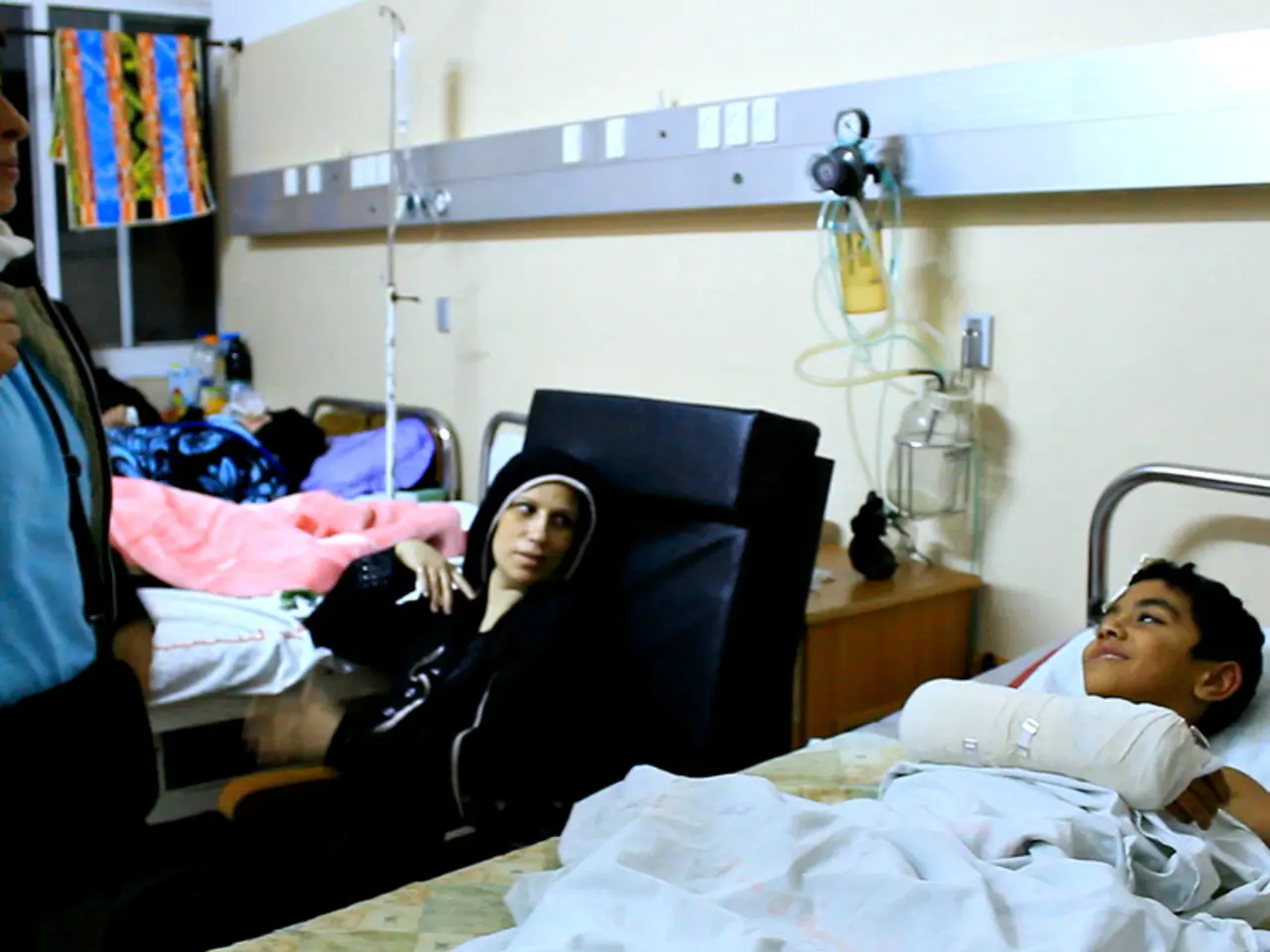The Preliminary Court deemed the Commission to be in breach of its duties as outlined in Article 85 (1) of the Treaty.
In the heart of Westphalia-Lippe, a significant dispute has unfolded at the Evangelical Hospital Lippstadt. The centre of the controversy is gynecologist Joachim Volz, who is suing against a ban on abortions imposed on him following a clinic merger with a Catholic provider.
Under the new service instruction, the clinic must consider Catholic interests regarding the performance of abortions and prohibits them from being performed in the facility. This ban applies to both inpatient and outpatient areas, extending to Volz's private practice in Bielefeld, 50 kilometres away, with an attached fertility centre.
Volz argues that the ban by the Catholic provider ignores medical judgment, the will of the patient, and the law. He contends that Church and medicine do not mix, and in his online petition titled "I am a doctor and my help is not a sin," he complains that, from the point of view of the Catholic provider, every termination of a pregnancy is murder, making him and his team "murderers."
The Westphalia-Lippe Regional Medical Association supports Volz's actions against the ban, finding it unethical to only act when the mother's life is acutely endangered. More than 150,000 people have already signed Volz's petition, expressing solidarity with his cause.
The merger resulted in the Evangelical Hospital Lippstadt being transferred to Catholic Trinity Hospital GmbH. Under German law (Section 218 of the Criminal Code), abortions are fundamentally illegal but not punishable within the first 12 weeks and after counselling. They can be legal in cases of severe fetal malformations, rape, or if there is a risk to the life, physical or mental health of the pregnant woman.
Abortions may still be performed if the life and health of the pregnant woman are in danger, according to a clinic spokesperson. However, Volz claims that this exception is too narrow, and he is prepared to go through further judicial instances if necessary.
The dispute between Volz and his employer, the Klinikum Lippstadt - Christliches Krankenhaus, also centres on allegations of organizational deficiencies that Volz claims made safe and proper patient care impossible. Volz has criticized the hospital management for failing to ensure the necessary structural and staffing conditions, which, according to him, compromised medical standards and patient safety.
A settlement hearing at the labor court in Hamm failed, and the hearing is now scheduled for August 8. In anticipation of this, a demonstration is planned in Lippstadt on the day of the Labour Court hearing, with a march from the clinic to the court, including political representatives from the state and federal levels.
The Archdiocese of Paderborn criticizes Volz for publicly questioning the clinic's ethical orientation and argues that church-run institutions contribute to the ethical value diversity of the healthcare system in a pluralistic society. However, Volz and his labor lawyer, Till Müller-Heidelberg, maintain that enforcing Catholic moral and ethical principles through labor law contradicts European and German law.
Under Volz's leadership at the Evangelical Hospital Lippstadt, the number of births has significantly increased. This increase, combined with the ongoing legal battle, has brought national attention to the small town of Lippstadt, casting a spotlight on the complex intersection of religion, law, and medicine.
- The controversy at Evangelical Hospital Lippstadt revolves around gynecologist Joachim Volz's lawsuit against a ban on abortions imposed after a clinic merger with a Catholic provider.
- The new service instruction requires the clinic to consider Catholic interests, prohibiting abortions in both inpatient and outpatient areas, including Volz's private practice in Bielefeld.
- Volz argues that this ban infringes on medical judgment, patient autonomy, and the law, stating that Church and medicine should not be intertwined.
- In his online petition, Volz accuses the Catholic provider of viewing every abortion as murder, branding him and his team as "murderers."
- The Westphalia-Lippe Regional Medical Association backs Volz, finding the ban unethical, with more than 150,000 people already signing his petition in solidarity.
- Abortions are illegal but not punishable within the first 12 weeks under German law, but can be legal in certain circumstances, such as fetal malformations, rape, or risks to the pregnant woman's life or health.
- Volz contends that the exception is too narrow and is willing to take the dispute to higher courts if necessary.
- The dispute also involves allegations of organizational deficiencies at the Klinikum Lippstadt, with Volz claiming that the management failed to ensure proper patient care standards.
- A settlement hearing at the labor court in Hamm failed, and the hearing is now scheduled for August 8, with a demonstration planned in Lippstadt on the same day.
- The Archdiocese of Paderborn criticizes Volz for questioning the clinic's ethical orientation, arguing that church-run institutions enrich the ethical value diversity of the healthcare system in a pluralistic society.
- Volz and his lawyer, Till Müller-Heidelberg, counter that enforcing Catholic moral and ethical principles through labor law contradicts European and German law.
- Under Volz's leadership, the number of births at the Evangelical Hospital Lippstadt has risen, gaining national attention for the small town of Lippstadt.
- The ongoing legal battle sheds light on the intricate intersection of religion, law, and medicine, sparking broader discussions in the fields of science, medical-conditions, health-and-wellness, and mental-health.
- The story is seeing coverage across various platforms, from books and social media to general-news outlets, entertainment channels, and crime-and-justice sections, even involving celebrities, politics, pop-culture, and sports, including sports-betting and weather reports.




